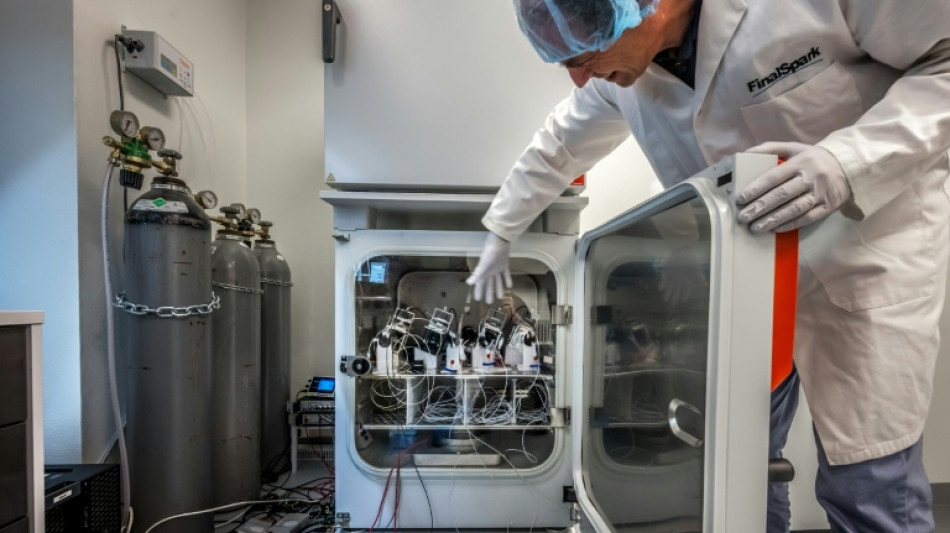
-
 Greece set new tourism record in 2025
Greece set new tourism record in 2025
-
Zelensky says Ukraine unbroken after 4 years, but Russia vows to fight on
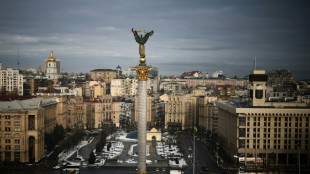
-
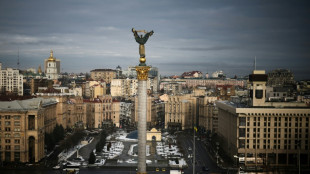 Zelenksy says Ukraine unbroken after 4 years, but Russia vows to fight on
Zelenksy says Ukraine unbroken after 4 years, but Russia vows to fight on
-
Snoop Dogg 'can't wait' for first Swansea visit

-
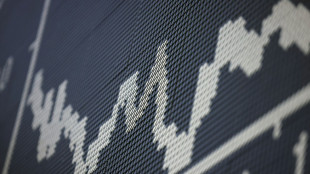 Stocks fluctuate as traders assess AI fallout, tariffs
Stocks fluctuate as traders assess AI fallout, tariffs
-
Post-it maker 3M faces Belgian trial over 'forever' chemicals

-
 UK comedian Russell Brand pleads not guilty to new rape, assault charges
UK comedian Russell Brand pleads not guilty to new rape, assault charges
-
Duterte drew up 'death lists', boasted about murders: ICC prosecutor

-
 UK govt urged to release documents linked to ex-prince Andrew
UK govt urged to release documents linked to ex-prince Andrew
-
Rights group slams treatment of viral Japanese monkey
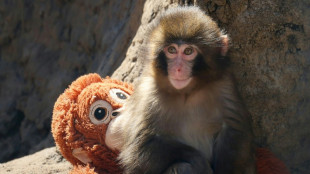
-
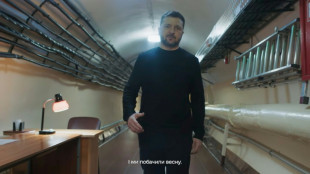 Inside the bunker where Zelensky led response to Russian invasion
Inside the bunker where Zelensky led response to Russian invasion
-
France demands explanation from US envoy over 'surprise' no-show

-
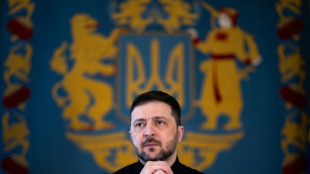 Putin failed to achieve goals in Ukraine, Zelensky says on war anniversary
Putin failed to achieve goals in Ukraine, Zelensky says on war anniversary
-
China tightens Japanese trade restrictions as spat worsens

-
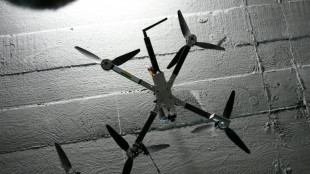 Ukraine war exhibition opens at Berlin Nazi bunker museum
Ukraine war exhibition opens at Berlin Nazi bunker museum
-
Jihadist threat puts eastern Senegal on edge
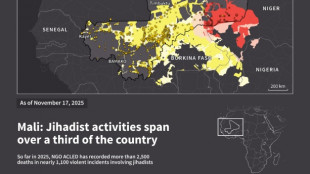
-
 Kim Yo Jong: the powerful sister behind North Korea's supreme leader
Kim Yo Jong: the powerful sister behind North Korea's supreme leader
-
North Korea ruling party promotes Kim Jong Un's younger sister

-
 Mexico's Jalisco cautiously tries returning to normal after cartel violence
Mexico's Jalisco cautiously tries returning to normal after cartel violence
-
Mexico's violence-hit Guadalajara to host World Cup games

-
 Mourinho's Bernabeu homecoming upended by suspension, racism row
Mourinho's Bernabeu homecoming upended by suspension, racism row
-
China targets Japanese companies over military ties

-
 Griezmann in talks to join MLS side Orlando City: source
Griezmann in talks to join MLS side Orlando City: source
-
France to revoke US envoy's govt access after summons no-show

-
 Spurs overpower Pistons in clash of NBA's form teams
Spurs overpower Pistons in clash of NBA's form teams
-
Inoue to fight Nakatani in Tokyo in May: reports

-
 Canada PM to push trade, rebuild fractured ties in India trip
Canada PM to push trade, rebuild fractured ties in India trip
-
Asian markets mixed as traders weigh AI and tariffs outlook
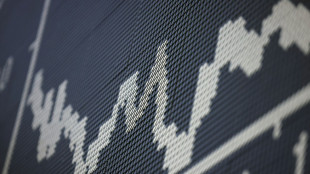
-
 Votes may 'melt like snow': Reform, Greens eye Labour UK bastion
Votes may 'melt like snow': Reform, Greens eye Labour UK bastion
-
Venezuela says exiles welcome to return following mass amnesty

-
 Australia buys parts for future AUKUS sub reactor
Australia buys parts for future AUKUS sub reactor
-
Ukraine marks four years since Russian invasion

-
 Brazil court to try politicians over hit on black councilwoman
Brazil court to try politicians over hit on black councilwoman
-
Interim president says Venezuelans welcome to return after amnesty law

-
 Man kills police officer in Moscow train station blast
Man kills police officer in Moscow train station blast
-
Despite drop in 2025, Russian oil exports exceed pre-war volumes: report

-
 ARIA Cybersecurity Announces Major Oil Refiner Deploys AZT PROTECT(TM)
ARIA Cybersecurity Announces Major Oil Refiner Deploys AZT PROTECT(TM)
-
Greene Concepts Announces Major Be Water Expansion in Walmart Stores Across the Southeast

-
 Fuse Battery Announces Amended Subscription Receipt Financing Details
Fuse Battery Announces Amended Subscription Receipt Financing Details
-
Lightwave Logic, Inc. Provides Update on Commercial Pipeline and Announces Timing of Fourth Quarter and Full Year 2025 Earnings Call
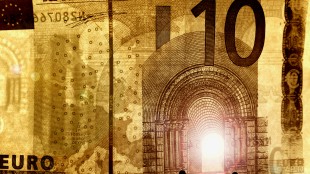
-
 Unlearn Advances Huntington's Disease AI Modeling Through Access to CHDI Foundation Data
Unlearn Advances Huntington's Disease AI Modeling Through Access to CHDI Foundation Data
-
Protagonist Therapeutics to Participate in Multiple Investment Bank Conferences in March 2026

-
 Specificity (OTCID:SPTY) to Present on the Emerging Growth Conference on February 26th, 2026.
Specificity (OTCID:SPTY) to Present on the Emerging Growth Conference on February 26th, 2026.
-
Havertys Reports Operating Results for Fourth Quarter 2025

-
 Viemed Healthcare Announces Year End 2025 Earnings Conference Call Details
Viemed Healthcare Announces Year End 2025 Earnings Conference Call Details
-
Galway Metals Drilling Intersects 9.0 g/t Gold Over 6.0m Beginning 15.0m from Surface at Southwest Deposit

-
 PeanutButterJelly Expands Affiliate Marketplace From 15 to 40 Affiliate Merchants; Website Sessions Rise 70%; Launches Conversion and Growth Optimization Plan
PeanutButterJelly Expands Affiliate Marketplace From 15 to 40 Affiliate Merchants; Website Sessions Rise 70%; Launches Conversion and Growth Optimization Plan
-
Digipower X Announces Uplisting to Cboe Canada

-
 Jaguar Mining Provides Update on Geologic Interpretation at the Chamé Gold Exploration Target, Brazil
Jaguar Mining Provides Update on Geologic Interpretation at the Chamé Gold Exploration Target, Brazil
-
Electrovaya Receives $10.5 Million P.O from Fortune 500 Customer


'Wetware': Scientists use human mini-brains to power computers
Inside a lab in the picturesque Swiss town of Vevey, a scientist gives tiny clumps of human brain cells the nutrient-rich fluid they need to stay alive.
It is vital these mini-brains remain healthy, because they are serving as rudimentary computer processors -- and unlike your laptop, once they die, they cannot be rebooted.
This new field of research, called biocomputing or "wetware", aims to harness the evolutionarily honed yet still mysterious computing power of the human brain.
During a tour of Swiss start-up FinalSpark's lab, co-founder Fred Jordan told AFP he believes that processors using brain cells will one day replace the chips powering the artificial intelligence boom.
The supercomputers behind AI tools like ChatGPT currently use silicon semiconductors to simulate the neurons and networks of the human brain.
"Instead of trying to mimic, let's use the real thing," Jordan said.
Among other potential advantages, biocomputing could help address the skyrocketing energy demands of AI, which have already threatened climate emissions targets and led some tech giants to resort to nuclear power.
"Biological neurons are one million times more energy efficient than artificial neurons," Jordan said. They can also be endlessly reproduced in the lab, unlike the massively in-demand AI chips made by companies like behemoth Nvidia.
But for now, wetware's computing power is a very long way from competing with the hardware that runs the world.
And another question lingers: could these tiny brains become conscious?
- Brain power -
To make its "bioprocessors," FinalSpark first purchases stem cells. These cells, which were originally human skin cells from anonymous human donors, can become any cell in the body.
FinalSpark's scientists then turn them into neurons, which are collected into millimetre-wide clumps called brain organoids.
They are around the size of the brain of a fruit fly larvae, Jordan said.
Electrodes are attached to the organoids in the lab, which allow the scientists to "spy on their internal discussion," he explained.
The scientists can also stimulate the organoids with a small electric current. Whether they respond with a spike in activity -- or not -- is roughly the equivalent of the ones or zeroes in traditional computing.
Ten universities around the world are conducting experiments using FinalSpark's organoids -- the small company's website even has a live feed of the neurons at work.
Benjamin Ward-Cherrier, a researcher at the University of Bristol, used one of the organoids as the brain of a simple robot that managed to distinguish between different braille letters.
There are many challenges, including encoding the data in a way the organoid might understand -- then trying to interpret what the brain cells "spit out," he told AFP.
"Working with robots is very easy by comparison," Ward-Cherrier said with a laugh.
"There's also the fact that they are living cells -- and that means that they do die," he added.
Indeed, Ward-Cherrier was halfway through an experiment when the organoid died and his team had to start over. FinalSpark says the organoids live for up to six months.
At Johns Hopkins University in the United States, researcher Lena Smirnova is using similar organoids to study brain conditions such as autism and Alzheimer's disease in the hopes of finding new treatments.
Biocomputing is currently more "pie in the sky," unlike the "low-hanging fruit" use of the technology for biomedical research -- but that could change dramatically over the next 20 years, she told AFP.
- Do organoids dream of electric sheep? -
All the scientists AFP spoke to dismissed the idea that these tiny balls of cells in petri dishes were at risk of developing anything resembling consciousness.
Jordan acknowledged that "this is at the edge of philosophy," which is why FinalSpark collaborates with ethicists.
He also pointed out that the organoids -- which lack pain receptors -- have around 10,000 neurons, compared to a human brain's 100 billion.
However much about our brains, including how they create consciousness, remains a mystery.
That is why Ward-Cherrier hopes that -- beyond computer processing -- biocomputing will ultimately reveal more about how our brains work.
Back in the lab, Jordan opens the door of what looks like a big fridge containing 16 brain organoids in a tangle of tubes.
Lines suddenly start spiking on the screen next to the incubator, indicating significant neural activity.
The brain cells have no known way of sensing that their door has been opened, and the scientists have spent years trying to figure why this happens.
"We still don't understand how they detect the opening of the door," Jordan admitted.
M.Fischer--AMWN